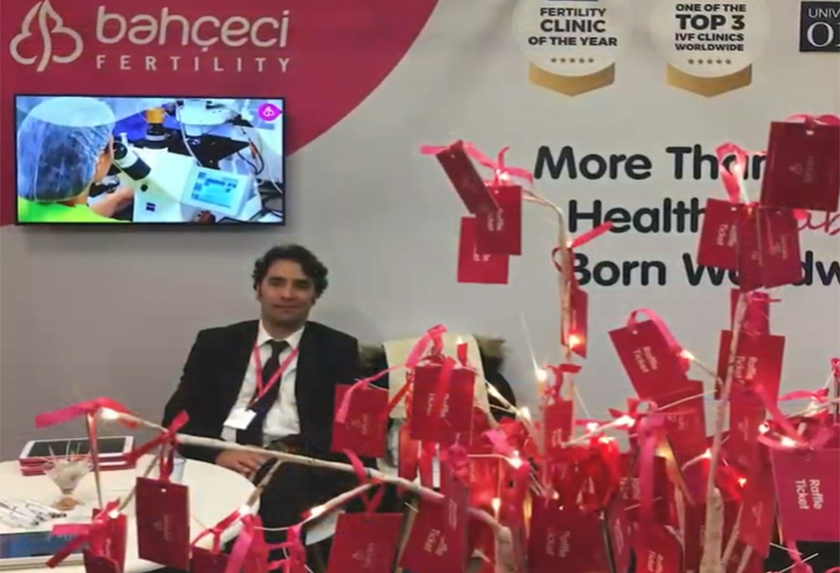Egg freezing is a method that women who are considering having children in the future, but do not wish to give birth at the moment can resort to. Eggs collected from the ovary are frozen and stored for future use and can be thawed at any time.
One of the main obstacles to women having a child is the decline in ovarian reserve and ovarian quality that comes with age. Scientific studies and current treatment results show that the chance of having children is severely reduced for women over 40 years of age. Moreover, many women diagnosed with low ovarian reserve or early menopause experience this fear of not having children at an earlier age. Thanks to the egg freezing technique, women can freeze their eggs without losing their reproductive ability and have babies using these eggs in the future.
Who can egg freezing be performed on?
Until recently, egg freezing was not allowed in our country due to the legislation on assisted reproduction techniques. However, the revised regulation legally permits egg freezing under the following conditions, among others:
– when the person will be undergoing radiotherapy and/or chemotherapy, which are harmful to the reproductive cells, following a cancer diagnosis
– when a serious surgical operation will lead to the loss of reproductive functions
– when a single woman, who is not planning to get married anytime soon, is diagnosed with low ovarian reserve
Who is egg freezing recommended for?
• Patients who must undergo treatments damaging the egg cells, such as chemotherapy and radiotherapy
• Patients who will undergo a surgical operation (such as ovary removal) that will result in the loss of reproductive functions
• Women who have a family history of early menopause, or who have low ovarian reserve and have never been pregnant
• Women who are career-focused and do not wish to have babies before their 30s.
How is the egg freezing procedure performed?
For the egg freezing procedure to be performed, ovaries need to be stimulated with hormones. Treatment begins on the second or third day of the menstruation and lasts about 12-15 days. Collected eggs are frozen in the laboratory using a special method called vitrification and stored for later use.
Egg Freezing Procedure Step by Step:
Follow-up: The patient consulting our centre prior to treatment needs to visit our centre again on the second day of the menstruation, when the treatment begins. The patient is given ovary-stimulating hormones so as to produce more eggs than usual. During the follow-up period, the patient needs to come to our centre for an examination 3-5 times. During each visit, the patient is examined, hormone levels are checked, and drug doses are adjusted according to these findings.
Egg collection procedure: When the size of the follicle reaches the desired level, egg collection is carried out with a needle inserted through the vagina with ultrasound imaging. This procedure is painless under general anaesthesia and takes approximately 15 minutes. The patient is discharged within 2-3 hours and can continue her daily life.
Egg freezing procedure: The eggs are frozen through the vitrification technique, free of water crystals. Frozen eggs are stored in liquid nitrogen tanks at -196 degrees Celsius.
IVF Process: When pregnancy is desired, the eggs of the patient who consulted our centre are thawed and the IVF process begins.
The person undergoing the egg freezing procedure must give written approval to the institution every year for the storage or destruction of their eggs.
Things to consider when choosing a centre for egg freezing:
To ensure efficient and safe freezing of eggs, it is necessary to choose an experienced centre with a strong embryology laboratory and a strong technological infrastructure. Within our health group, the latest the methods and techniques in the world, whose efficiency has been proven, are performed with success; and the eggs are frozen using the vitrification method.
The fast-freezing technique called vitrification gives revolutionary results in egg freezing. Proper execution is very important for the vitrification technique to be successful. Fast and accurate thawing of the eggs is as important as their fast and accurate freezing. Since eggs collected from women who are diagnosed with low ovarian reserve or who are at risk of early menopause are already limited in number and quality, egg loss during or after the freezing procedure should be at the lowest possible level. Over 40 embryologists experienced in this field work in our centres. Thanks to our experience and technological infrastructure, our pregnancy rates resulting from this method are similar to our normal pregnancy rates.
Another point to consider when choosing a centre is whether it has a solid and healthy infrastructure capable of storing frozen eggs for several years. For 23 years, Bahçeci Health Group has been using the latest technologies in its laboratories at the same time as the world, sometimes even as the pioneer in Turkey; thus making the parenting dreams of thousands of couples come true every year.
Is egg freezing expensive?
When compared to the benefits and personal gain it provides, embryo or egg freezing are not actually expensive practices. However, since special kits and tanks are required for freezing and storage, one-time freezing fees are charged in centres providing this service. In addition, since very low temperature environments are required for long-term storage of eggs without damage, it is necessary to constantly add liquid nitrogen to the storage systems in order to provide this environment, which is costly on an annual basis. Thus, centres charge patients an annual maintenance fee.





